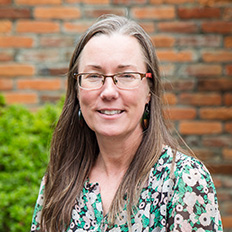
By Kari Scrimshaw, Ringa Hora chief executive
Some people are born leaders. But everyone has the capability to be a leader. For most people, leadership is learned – right to the level of parents, who frequently learn their family leadership skills as they go.
Given this, and how important leadership is to creating successful businesses and workplaces, it is vital to look at how good the opportunities are in New Zealand to learn how to lead.
That’s why we at Ringa Hora have created Te Manu Arataki Leadership Project – to take a comprehensive look at how leadership is reflected in qualifications across vocational education, and to see if we can make it better.
When I look back on my career, I reflect on the opportunities I had very early in the hospitality and tourism sector to lead, grow teams, develop people, solve problems, and to communicate and resolve issues. These types of opportunities, which helped me immensely, arise frequently in service industries. If you’re in retail, hospitality, cleaning, and similar industries, if you show promise in three to six months, chances are you will be plucked out and given some sort of leadership tasks.
These opportunities can be presented to people who aren’t necessarily signing up to degree-level qualifications. We know many outstanding leaders may not have had success through traditional academic roots.
There are also many chances to show leadership in a workplace even if one doesn’t hold any sort of management position. Workplaces benefit all the time from small acts of leadership, be it guiding people, coming up with ideas to make the place run better, or simply leading by example.
The big question for us is, how do we best nurture leaders?
As so many aspects of leadership can be learned, there is a place for Ringa Hora as a Workforce Development Council to work with industries and providers to develop the best possible training and qualifications for leadership. These can involve general qualifications in leadership that apply in most industries, to more specialised ones where the ability to lead effectively requires specific knowledge of one’s workplace.
We also want to consider all models of leadership, and especially non-Westernised leadership that are evident in places like marae or in Pacific communities – different forms of leadership but ones which are highly effective and undoubtedly transferable to other forums.
Te Manu Arataki Leadership Project will look at all aspects of leadership and training. We will consider what people think leadership is, what makes the best leaders effective, how leadership can be encouraged through all the diverse communities that make up our country, examine the leadership qualifications that already exist, and develop both revised and new qualifications if appropriate.
What will make it truly work is you: workplaces, current and emerging leaders, trainers, iwi, community groups, employees, schools and kura, and qualification developers. It is your knowledge and wisdom that will help in our joint goal to develop the best leaders for our industries.
Te Manu Arataki Leadership Project is an exciting challenge that I am proud Ringa Hora is leading. I look forward to working on ways to help provide the best leadership we can for our industries and our country.
